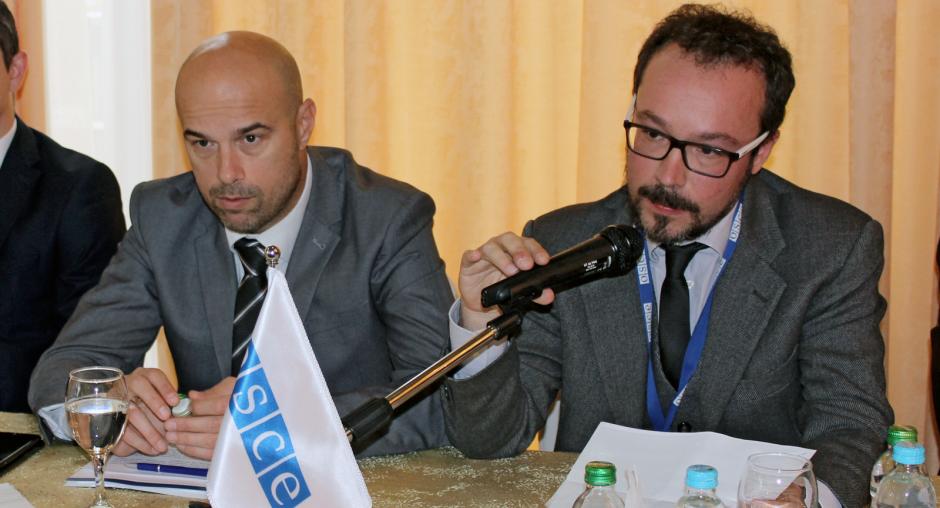OSCE-supported meeting of Supervisory Body for War Crimes Strategy concludes in Banja Luka

BANJA LUKA, Bosnia and Herzegovina, 3 November 2016 – The OSCE Mission to Bosnia and Herzegovina supported a thematic meeting today in Banja Luka of the Supervisory Body for the Implementation of the National Strategy for Processing of War Crimes, representatives of the High Judicial Prosecutorial Council Secretariat, the ministries of justice, and judges and prosecutors working on war crimes cases.
The main topic of discussion was war crimes proceedings in absentia, in other words, trials held in absence of the defendant/s for the criminal offence of war crimes against civilians. A number of war crimes trials were conducted in absentia during the 1992-1995 conflict, or in its immediate aftermath. Trials in absentia are no longer possible in Bosnia and Herzegovina (BiH) after the 2003 Criminal Procedure Codes came into force.
Nonetheless, a number of cases where in absentia convictions were entered and not enforced have recently resurfaced after having remained “dormant” in the Court's archives for many years. The exact number of similar cases that could still resurface is unknown.
“We see that two competing interests are at stake, namely guaranteeing legal certainty and ensuring human rights of all citizens on the one hand, and ensuring an effective fight against impunity on the other,” said Francesco de Sanctis, Head of Rule of Law of the OSCE Mission to BiH. “It is necessary that Bosnia and Herzegovina finds a comprehensive solution to the issues arising from this kind of cases.”
President of High Judicial and Prosecutorial Council and Supervisory Body, Milan Tegeltija said: “The recent resurfacing of those cases has caused a state of legal insecurity presenting new challenges for the BiH judiciary for which the current legislative framework does not provide an adequate solution. This in turn could affect public trust in the work of the judicial institutions in BiH. The aim of the thematic meeting is to encourage a discussion based on information between practitioners and other legal experts in order to find a systemic solution to this problem.”
The OSCE Mission to BiH continuously supports the implementation of the National War Crimes Strategy through the provision of qualitative analyses, findings, and technical support to domestic and international stakeholders. The Mission’s findings, including those presented in its reports and working papers, will continue to enable the identification of obstacles to fair and high-quality war crimes cases processing and form the basis of targeted advice and capacity-building activities for relevant stakeholders, including the Supervisory Body.
